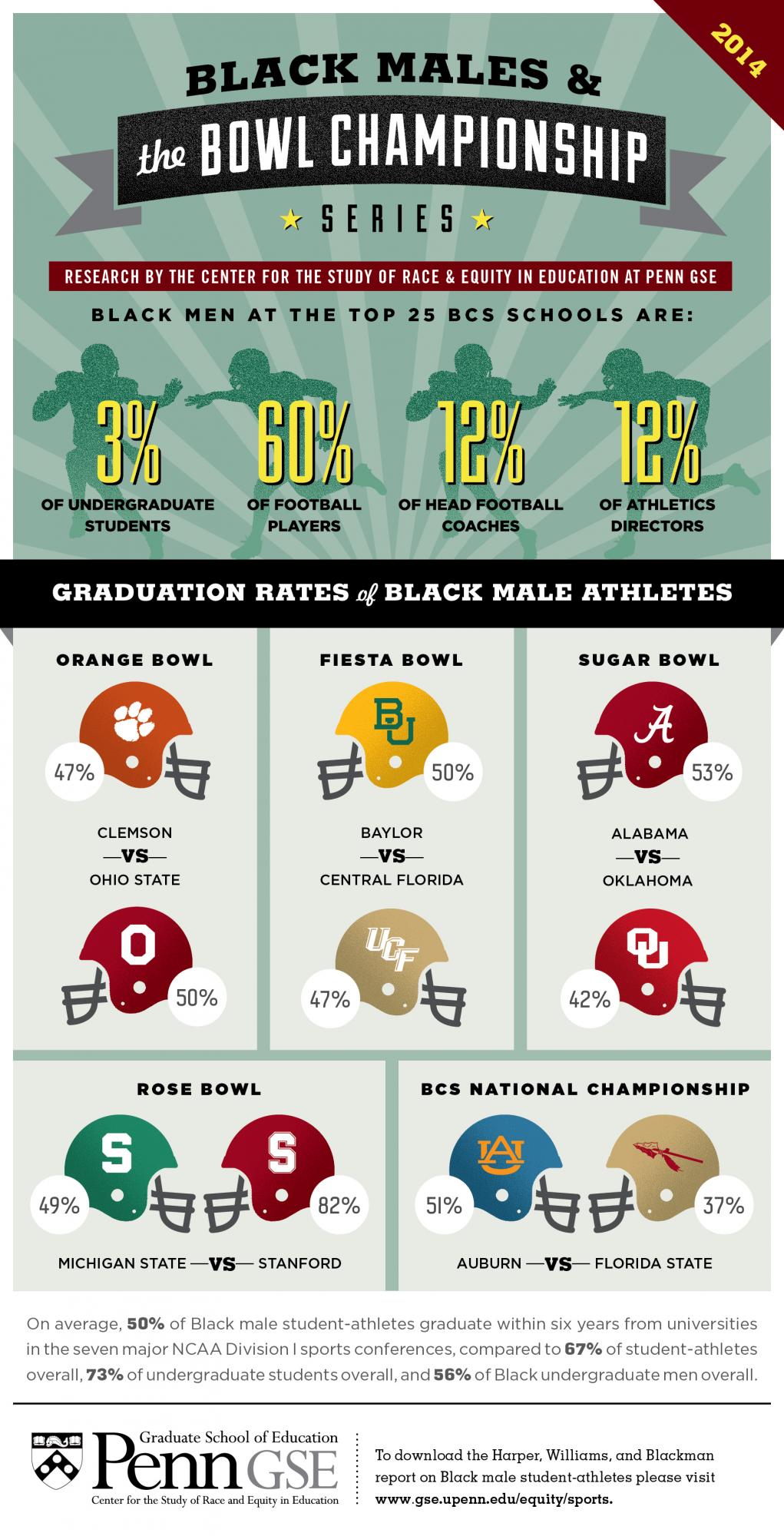When the mammoth-sized man from the Muck caught a touchdown pass late Monday night there was a lot of money on the line. But, for now Kelvin Benjamin won’t see a penny of it.
Benjamin, a 6-foot-5-inch, 234-pound mismatch-waiting-to-happen from Belle Glade, Florida, caught a touchdown with 19 seconds remaining to allow Florida State University to clinch its first national championship in football in 14 years.
| Photo taken from the Associated Press. |
At the elite levels of football and men’s basketball the players are disproportionately black and the crowds cheering them on are usually not. Meanwhile, there are coaches and universities that are making hundreds of thousands of dollars — if not more — off the labor of these young men.
Darren Rovell, a sports business reporter with ESPN, stated on Twitter that the Seminoles win was worth between $1.5 and $2.5 million in licensing revenue for university. Rovell also reported FSU football coach Jimbo Fisher earned an additional $225,000 Monday night as his contract provided $125,000 for winning the national championship and $100,000 for an undefeated season.
Access to a free education was supposed to balance the inherent inequality of major college athletics; however, a large majority of those who are participating are not graduating. Florida State is not the only university that exploits athletes. Florida State is just one of the best at it.
The Center for the Study of Race and Equality in Education reported in December that Florida State had the lowest graduation rate for black football players of the 10 schools that played in the five major bowl games. That may sound like a mouthful. But in short Fisher has enriched himself, with that bonus as well as with a new contract that will pay him more than $4 million annually, off the backs of young men, many of whom will not receive a penny or an education for their work.
To date, neither Fisher, nor Florida State, have been asked why just 37 percent of black football players at the university graduate within six years. Auburn officials should have been asked a similar questions about its 51 percent graduation rate for black football players.
According to the Center for the Study of Race and Equality in Education, Florida State was fourth in black male student-athlete "overrepresentation" and Auburn was 22nd. Their research found, 3.9 percent of undergraduates at the Tallahassee-based school are black men. Meanwhile, 75.4 percent of football and men’s basketball players are black men. Auburn has an even lower percentage of black men among its undergraduates at 3.6 percent. However, the school only has 67 percent of its football and men’s basketball team comprised of brothas.
“What we deem troubling, however, is the disgracefully small number of Black male students in the undergraduate population versus their large representation on revenue-generating sports teams,” the 20-page report stated. “These are campuses on which admissions officers and others often maintain that academically qualified Black men cannot be found; yet their football and basketball teams are overwhelmingly comprised of Black male student-athletes.”
Some may argue that the number of black men who pursue opportunities in professional sports before exhausting their eligibility is a reason graduation rates are so low. Others would state not every athlete is interested in being a college student. Both are true; but, there numerous examples of athletes handling business in the classroom and on the field.
Former Seminoles quarterback E.J. Manuel earned a communications degree from FSU before being selected in the first round of the 2013 NFL Draft. Teddy Bridgewater, one of the top quarterback prospects coming out of college this year, earned a degree in December in Sports Administration from the University of Louisville. And who can forget Robert Griffin III the former Baylor quarterback who was working on a master's degree when he won the 2011 Heisman Trophy.
The debate on whether college athletes in revenue-generating sports should be paid is one worth having. As valid as that discussion is, it should not be lumped into the one about the appallingly low graduation rates for those who play for the revenue-generating teams.
Players, coaches, administrators and even fans are responsible for the low graduation rates in major college athletics.
Let’s start with the players, who need to make the most of an opportunity to graduate college without racking up debt. Coaches must do more than refine the athletic tools of those in their care because college is a time for academic, social and emotional growth as well. Since administrators and college presidents will never schedule fewer games, because that cuts into the revenue, these powerbrokers could work on not scheduling contests that make it difficult, if not impossible, for students to be students. Finally, fans should demand that the players are young men who can represent them athletically and academically.
There was tasteless mocking of some Seminoles football players on social media over their syntax after Monday’s win. Instead of asking why players on college football teams are not great speakers, we would be better served asking why they are not graduating.
Laughs and liveliness,
-Wb
